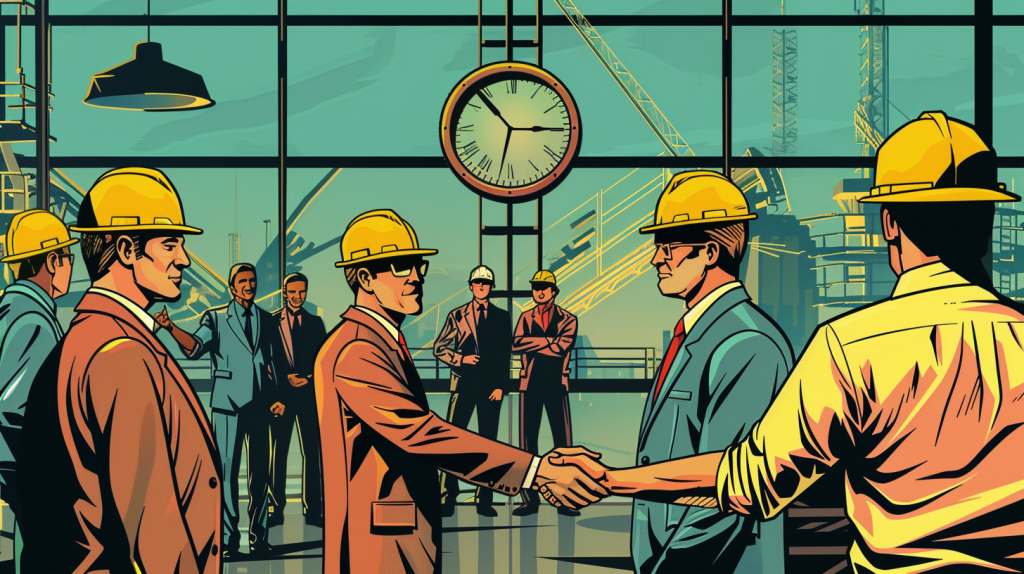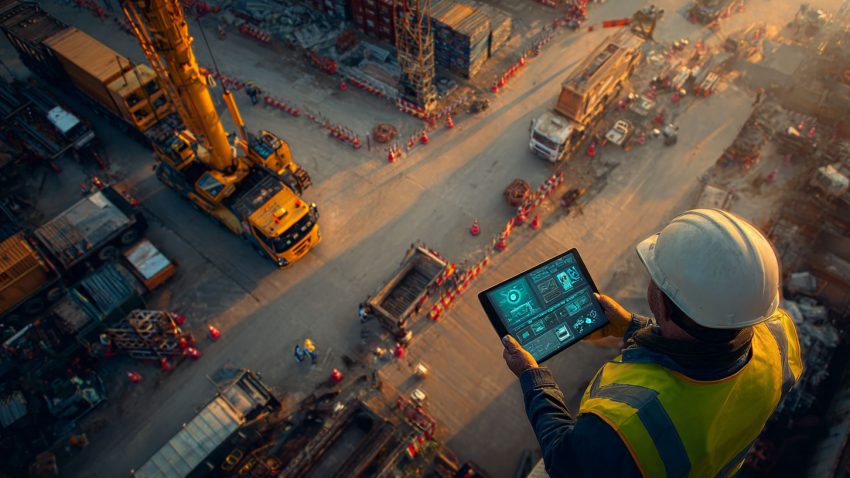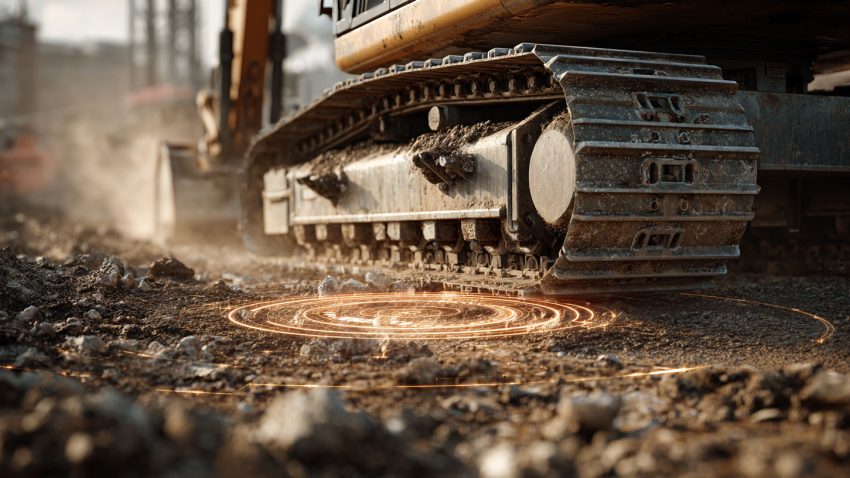15 Essential AI Tools for Modern Construction Superintendents: Leading the Smart Construction Revolution
Table of Contents:
The construction industry is undergoing a revolutionary change, driven by the advancements in Artificial Intelligence (AI). For superintendents, this evolution opens up new horizons for efficiency, accuracy, and innovation. AI is not just a futuristic concept; it’s a present-day reality that’s reshaping how construction projects are planned, executed, and managed. In this era of smart construction, staying updated with the latest AI tools is not just an option; it’s a necessity for anyone aspiring to lead successful projects.
In Silicon Valley and beyond, the rapid integration of technology in construction is a response to the growing complexity of projects, the increasing demand for sustainability, and the ever-present need for safety and efficiency. AI tools are at the forefront of this transformation, offering solutions that were once considered impossible. These tools help superintendents to not only streamline their operations but also provide insights that lead to better decision-making.

Let’s explore 15 essential AI tools that every superintendent should be aware of, diving into how each of these tools can revolutionize various aspects of construction management.
1. Project Planning and Scheduling Tools
Predictive Planning for Timely Project Delivery
AI-driven project planning tools are revolutionizing the way superintendents schedule and oversee projects. These tools analyze vast amounts of data to predict project timelines and identify potential delays. They enable superintendents to optimize schedules proactively, ensuring projects stay on track and are delivered on time.
Enhancing Efficiency with Smart Scheduling
The advanced scheduling capabilities of these tools take into account various factors like resource availability, weather conditions, and potential bottlenecks. By doing so, they not only improve the accuracy of project timelines but also enhance the overall efficiency of the construction process.
2. Real-Time Data Analysis Platforms
Making Informed Decisions on the Fly
Platforms offering real-time data analysis are crucial in today’s fast-paced construction environment. They provide superintendents with instant access to critical information, enabling them to make informed decisions quickly, adapt to changes, and manage projects more effectively.
Harnessing Data for Better Project Outcomes
These platforms process and visualize data from various sources, offering insights that guide superintendents in optimizing workflows, managing resources, and mitigating risks, leading to more successful project outcomes.
3. Automated Resource Management Systems
Optimizing Resource Allocation for Maximum Efficiency
AI in resource management is a game-changer. These systems forecast the best allocation of manpower, materials, and machinery, ensuring that resources are used efficiently and cost-effectively, which is crucial in large-scale construction projects.
Reducing Waste and Maximizing Productivity
By accurately predicting resource needs, these AI systems help in minimizing waste and ensuring that every aspect of the project is adequately resourced, thereby maximizing overall productivity.
4. Risk Assessment Applications
Proactive Risk Management for Safer Projects
AI applications designed for risk assessment are pivotal in identifying and mitigating potential risks early on. They analyze data to foresee financial, operational, or safety risks, allowing superintendents to take preemptive actions to safeguard their projects.
Enhancing Project Reliability and Safety
These applications enhance the reliability and safety of construction projects. By predicting risks before they materialize, they contribute significantly to creating safer construction environments and more secure investment outcomes.
5. AI-Enabled Safety Monitoring
Real-Time Hazard Detection for Improved Safety
Safety is a top priority, and AI-enabled tools for safety monitoring are transforming site safety standards. These tools analyze real-time data from the site to detect potential hazards, ensuring adherence to safety protocols and reducing accident risks.
Elevating Safety Standards in Construction
The implementation of these AI tools elevates safety standards on construction sites. They provide superintendents with the tools to proactively manage site safety, creating a safer working environment for all involved.
6. Communication and Collaboration Platforms
Streamlining Project Communication
Effective communication is crucial in construction, and AI-powered platforms facilitate seamless interactions among teams. These tools ensure that everyone involved in a project is on the same page, leading to improved collaboration and project success.
Enhancing Team Coordination and Efficiency
With features like instant messaging, document sharing, and real-time updates, these platforms enhance team coordination and efficiency. They play a critical role in breaking down communication barriers and fostering a collaborative project environment.
7. Compliance and Regulation Software
Simplifying Compliance in Complex Projects
Navigating the complex web of regulations is streamlined with AI software. These tools automatically ensure that projects comply with local laws and standards, saving time and preventing potential legal issues.
Ensuring Adherence to Industry Standards
Compliance and regulation software is essential for maintaining the integrity of construction projects. It ensures that all aspects of the project adhere to industry standards and best practices, which is crucial in today’s construction landscape.
8. Quality Control Systems
Consistent Monitoring for High-Quality Outcomes
AI systems for quality control continuously monitor work quality, ensuring that it meets or exceeds the set standards. These systems are key to reducing the likelihood of rework and maintaining high-quality outcomes in construction projects.
Driving Excellence in Construction Quality
By providing consistent and objective assessments, AI-driven quality control systems drive excellence in construction quality. They are instrumental in ensuring that every phase of the project meets the expected standards of quality.
9. Environmental Impact Analysis Tools
Making Sustainable Choices in Construction
AI tools for environmental impact analysis help superintendents make more sustainable choices in their projects. These tools assess the environmental impact of construction activities, aiding in the selection of sustainable materials and practices.
Aligning Projects with Green Building Standards
In today’s world, where sustainability is a priority, these AI tools are essential in aligning construction projects with green building standards. They play a critical role in promoting environmentally responsible construction practices.
10. Predictive Maintenance for Machinery
Minimizing Downtime with Predictive Insights
Predictive maintenance tools use AI algorithms to forecast when equipment requires maintenance. This proactive approach minimizes machinery downtime and extends the lifespan of construction equipment.
Enhancing Equipment Efficiency and Longevity
By predicting maintenance needs, these tools enhance the efficiency and longevity of machinery. This is especially important in large-scale construction projects where equipment reliability is key to project success.

StruxHub
Discover how StruxHub can revolutionize your construction management. Contact us today!
11. Procurement and Supply Chain Optimization
Streamlining Procurement for Cost-Effective Operations
AI in procurement and supply chain optimization leads to more efficient and cost-effective operations. These tools streamline the procurement process, from supplier selection to inventory management.
Achieving Operational Excellence in Procurement
The operational excellence achieved through AI-driven procurement systems contributes significantly to the overall success of construction projects. They ensure that materials and services are procured at the right time, quantity, and cost.
12. Client Relationship Management (CRM) Systems
Personalized Client Management for Enhanced Satisfaction
CRM systems enhanced with AI provide personalized experiences for clients. They offer tailored solutions and foster better client relationships, which is key in today’s customer-centric construction industry.
Building Strong Client Relationships with AI
AI-powered CRM systems are crucial in building and maintaining strong client relationships. They enable superintendents to understand client needs better and deliver customized services, enhancing overall client satisfaction.
13. 3D Modeling and Design Tools
Visualizing Projects with Advanced 3D Models
AI-enhanced 3D modeling tools enable superintendents to visualize projects before construction begins. This aids in better planning, client presentations, and decision-making.
Improving Design Accuracy and Client Engagement
These tools improve design accuracy and enhance client engagement. They allow clients to see and interact with 3D models of their projects, ensuring their vision is accurately brought to life.
14. Training and Simulation Software
Upskilling Teams with AI-Driven Training
AI-driven training programs and simulations are essential for upskilling construction workers and managers. They provide immersive learning experiences that keep teams updated with the latest construction methodologies.
Fostering a Culture of Continuous Learning
The implementation of AI in training fosters a culture of continuous learning and improvement. It ensures that construction professionals are equipped with the skills and knowledge needed to tackle modern construction challenges.
15. Data Analytics and Reporting Tools
Turning Data into Actionable Insights
Data analytics and reporting tools are invaluable in turning vast amounts of project data into actionable insights. They help superintendents in making data-driven decisions that lead to continuous improvement in project outcomes.
Enhancing Project Management with Data Analytics
These tools enhance project management by providing in-depth analysis and reporting capabilities. They are key in identifying trends, monitoring progress, and ensuring that projects meet their goals and objectives.
In embracing these AI tools, superintendents are not just staying abreast of technological advancements; they are leading the charge towards a smarter, more efficient, and more successful future in construction. These tools are the allies of modern construction professionals, empowering them to manage projects with greater precision, safety, and success. The future of construction is undoubtedly intertwined with AI, and these 15 tools are your gateway to mastering this exciting new landscape.
StruxHub is a construction project management software that helps you manage projects from start to finish. It offers features like task management, document management, and communication tools. StruxHub can help you save time and money, improve communication, collaboration, and decision-making.
To learn more about how StruxHub can streamline your construction management processes, request a demo today. By completing our form, you’ll hear from our team soon to discuss how StruxHub can help you:
- Schedule construction material deliveries with your trades
- Coordinate construction site resources and on-site logistics
- Digitize work permits and inspection forms
- Communicate and track P6 and Excel schedules
- Broadcast announcements to all construction workers
Don’t miss out on the opportunity to optimize your construction management processes with StruxHub. Sign up for a free demo today.



